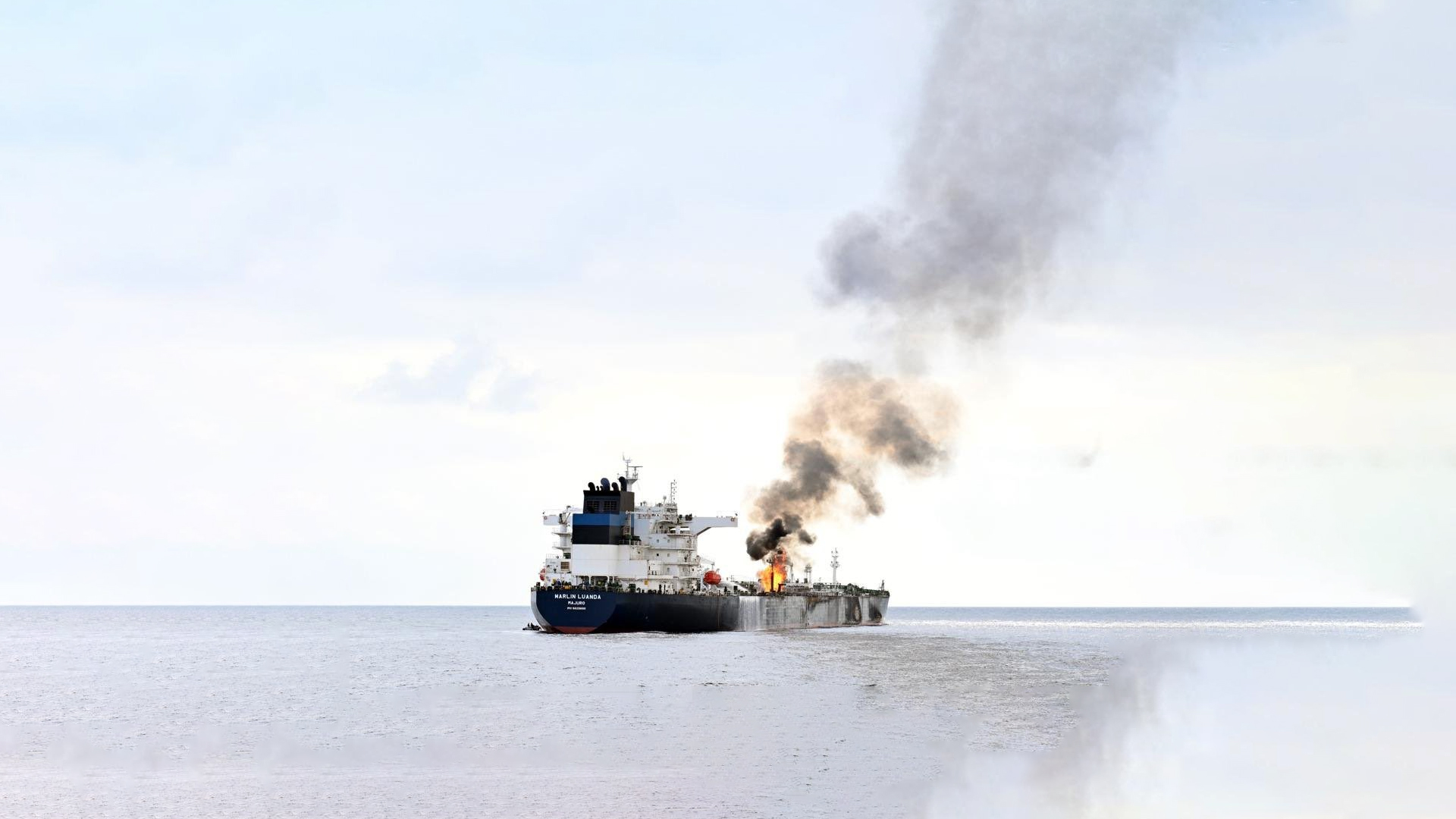The Middle East, particularly the waters off Yemen’s coast, has long been a critical artery for global oil transportation. However, recent escalations in maritime attacks have cast a shadow over this vital trade route, raising significant concerns about the stability of global oil markets and the broader financial implications. This article delves into the financial risks and consequences of these repeated attacks, analysing the potential ripple effects on global economies and markets.
The Strategic Importance of the Bab el-Mandeb Strait
The Bab el-Mandeb Strait, a narrow chokepoint between Yemen on the Arabian Peninsula and Djibouti and Eritrea in the Horn of Africa, is one of the world’s most crucial maritime passages. Approximately 4.8 million barrels of oil and petroleum products flow through this strait daily, accounting for nearly 9% of total seaborne-traded petroleum. Disruptions in this corridor can thus have immediate and severe implications for global oil supply chains.
Recent Attacks and Their Immediate Impact
In recent months, the frequency of attacks on oil tankers in the Yemen region has increased, with the most recent incident involving a missile strike on an oil tanker off the coast of Yemen. These attacks not only pose a direct threat to the vessels and their crews but also significantly disrupt the flow of oil, leading to immediate spikes in oil prices. The heightened risk has prompted many shipping companies to reconsider their routes, opting for longer, more expensive detours around the Cape of Good Hope to avoid the perilous waters near Yemen.
Financial Risk Analysis
The financial risks stemming from these repeated attacks are multifaceted, impacting oil prices, insurance premiums, shipping costs, and broader market stability.
Oil Price Volatility
The most immediate financial consequence of attacks on oil tankers is the spike in oil prices. The threat of supply disruptions leads to speculative trading, driving prices up. This volatility can strain economies dependent on oil imports, as sudden increases in oil prices can lead to inflationary pressures. For instance, the missile attack reported off Yemen’s coast recently caused a noticeable uptick in Brent crude prices, reflecting market anxiety about potential supply chain disruptions.
Increased Insurance Premiums
Maritime insurance premiums have soared in response to the heightened risk in the region. War risk insurance, in particular, has seen significant hikes, with premiums sometimes doubling or tripling. These increased costs are often passed down the supply chain, leading to higher prices for end consumers. Insurance companies are also facing greater claims risks, which could impact their profitability and lead to tighter underwriting standards and higher premiums globally.
Higher Shipping Costs
Shipping companies are incurring additional costs due to the need for rerouting to avoid high-risk areas. The detour around the Cape of Good Hope, for instance, can add several weeks to shipping times and significantly increase fuel consumption. These added costs contribute to higher freight rates, which can affect global trade by making the transportation of goods more expensive. This impact is particularly pronounced for industries reliant on timely deliveries of petroleum products and other goods transported via these routes.
Broader Market Stability
The cumulative effect of higher oil prices, increased insurance premiums, and elevated shipping costs can lead to broader market instability. Emerging markets, particularly those heavily reliant on oil imports, may experience increased economic pressures, potentially leading to currency devaluations and balance of payments issues. Moreover, global stock markets, especially those with significant exposure to the energy sector, may experience heightened volatility as investors react to news of further attacks and potential disruptions.
Prospective Analysis: Long-term Consequences
The long-term consequences of repeated attacks on oil tankers in the Yemen region could be profound, impacting not just the oil and maritime industries but also global geopolitical dynamics and economic stability.
Shift in Trade Routes and Energy Supply Chains
Continued instability in the Bab el-Mandeb Strait could lead to a permanent shift in global trade routes. Countries and companies may increasingly invest in alternative routes and sources of energy to mitigate the risks associated with Middle Eastern oil. This shift could accelerate the transition to renewable energy sources as nations seek to reduce their dependence on fossil fuels transported through vulnerable chokepoints. Additionally, the construction of new pipelines and overland routes, such as those through Africa or Europe, may be expedited to provide more secure alternatives.
Geopolitical Implications
The geopolitical landscape is likely to be further complicated by these maritime security threats. Major powers with vested interests in the region, such as the United States, China, and Russia, may increase their naval presence to protect their shipping interests, leading to heightened tensions and potential conflicts. Regional powers, including Saudi Arabia and Iran, may also intensify their proxy battles, further destabilising the area and exacerbating the risks to maritime security.
Economic Diversification and Resilience
Countries dependent on oil exports, particularly those in the Middle East, may face increasing pressure to diversify their economies. The repeated disruptions could highlight the vulnerabilities of oil-dependent economies, prompting governments to invest in other sectors such as tourism, technology, and manufacturing. Economic diversification efforts could enhance resilience to future shocks, though they will require substantial investment and policy shifts.
Technological Advancements in Maritime Security
The ongoing threat to oil tankers could spur advancements in maritime security technologies. Innovations in surveillance, detection, and response mechanisms could be developed to protect vessels from attacks. This could include the deployment of drones, automated defence systems, and enhanced communication networks to improve situational awareness and response times. While these advancements could mitigate some risks, they will also entail significant financial investments and international cooperation.
Impact on Global Energy Markets
The repeated attacks on oil tankers in the Yemen region are likely to have lasting impacts on global energy markets. The increased risks and associated costs could lead to higher long-term oil prices, influencing investment decisions in both conventional and renewable energy sectors. Oil-producing countries may find it more challenging to attract investment, while renewable energy projects may become more attractive due to their perceived lower risk. This shift could accelerate the global energy transition, though it will also require substantial changes in infrastructure and policy.
The repeated attacks on oil tankers in the Yemen region underscore the vulnerability of global oil supply chains and the broader financial risks associated with maritime insecurity. The immediate consequences, including oil price volatility, increased insurance premiums, and higher shipping costs, are significant. However, the long-term implications may be even more profound, potentially reshaping global trade routes, geopolitical dynamics, and energy markets.
As the world grapples with these challenges, it is imperative for policymakers, businesses, and investors to develop strategies to mitigate risks and enhance resilience. This will require a combination of technological innovation, economic diversification, and international cooperation. Only through a concerted effort can the global community navigate the complex landscape of maritime security and ensure the stability of vital energy supply chains.





